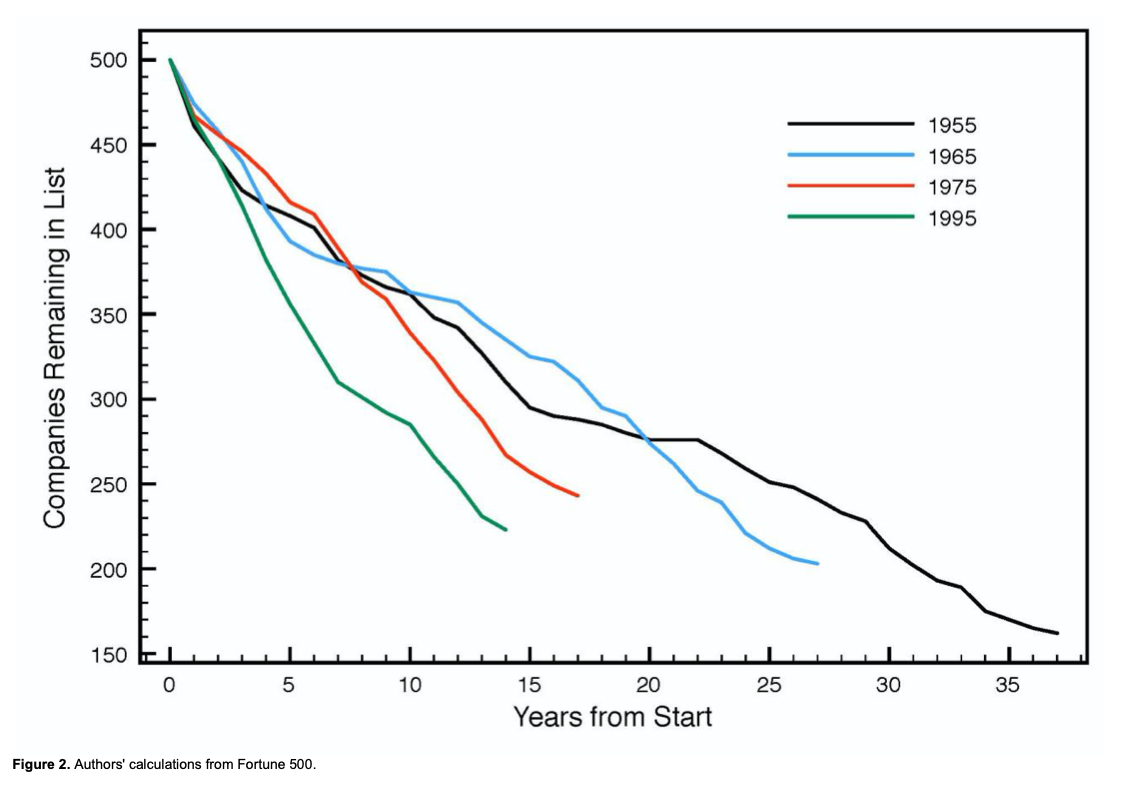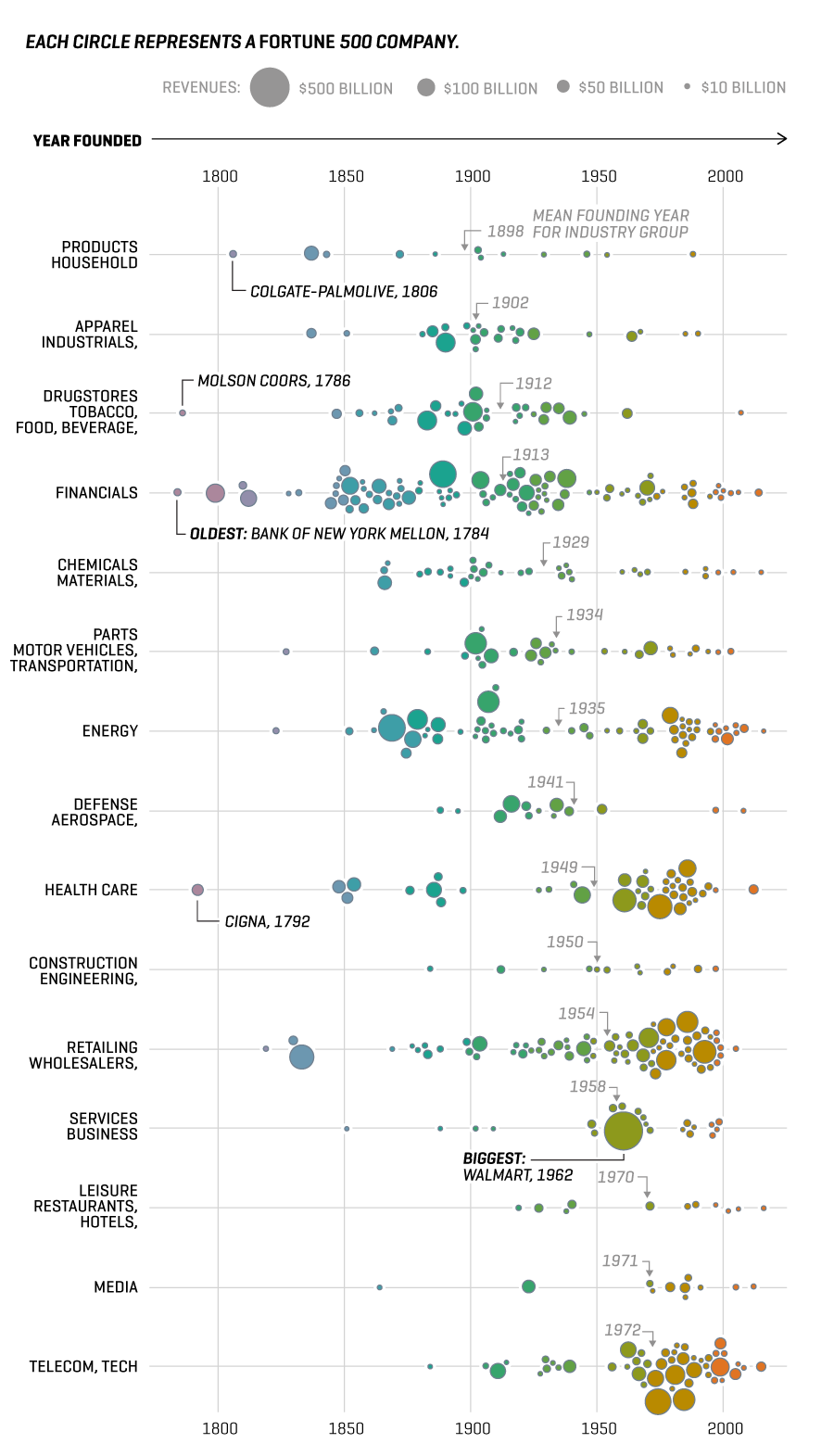Since the mid-20th century, the US economy has become increasignly dynamic. Many of today's most prominent companies did not even exist in 1950.
A historical look at the Fortune 500 illustrates this increasing dynamism quantitatively:

Source: Kaufmann, https://www.kauffman.org/wp-content/uploads/2012/06/fortune_500_turnover.pdf
As the chart above shows, half of the companies included on the Fortune 500 in 1955 remained on the list 30 years later. But the 1995 list turned over twice as fast— only 14 years later fewer than half of the 1995 list remained.
The chart below provides another lens on the economy's dynamism. It arranges each of the current members of the Fortune 500 by their industry and founding year. It also indicates the mean founding year for each industry. The average founding year for the oldest industry, Household Products, is 1898. While the average founding year for the youngest industry, Telecom & Tech is 1972.

Source: Fortune, https://interactives.fortune.com/age_f500/index.html
Compared to this, colleges and universities are mostly antiques. I calculated the average founding year for U.S. News's 2019 lists of top colleges and universities. (I used U.S. News' lists for their widespread use & familiarity, not at all to endorse the lists.)
Among the top 100 liberal arts colleges:
- The mean founding year is 1856
- 11 were founded in the last 100 years
- 2 were founded in the last 50 years
Among the top 50 national universities:
- The mean founding year is 1845
- 5 were founded in the last 50 years
- Zero(!) were founded in the last 50 years
The contrast is striking. Our top colleges and universities are ~100 years older on average than our largest companies. Even the oldest industries have proportionately more new entrants among their largest players.. Almost all the industries include major companies founded after the year 2000.
This age difference alone doesn't indicate a problem. But it does raise some obvious questions:
- Is our education system well adapted to our modern economy?
- Are these traditional leaders innovating enough or Is their dominance holding innovation back?
In the next few weeks, *Remixing* *Work* will examine these questions and others to better understand what the future of work means for the future of education.
